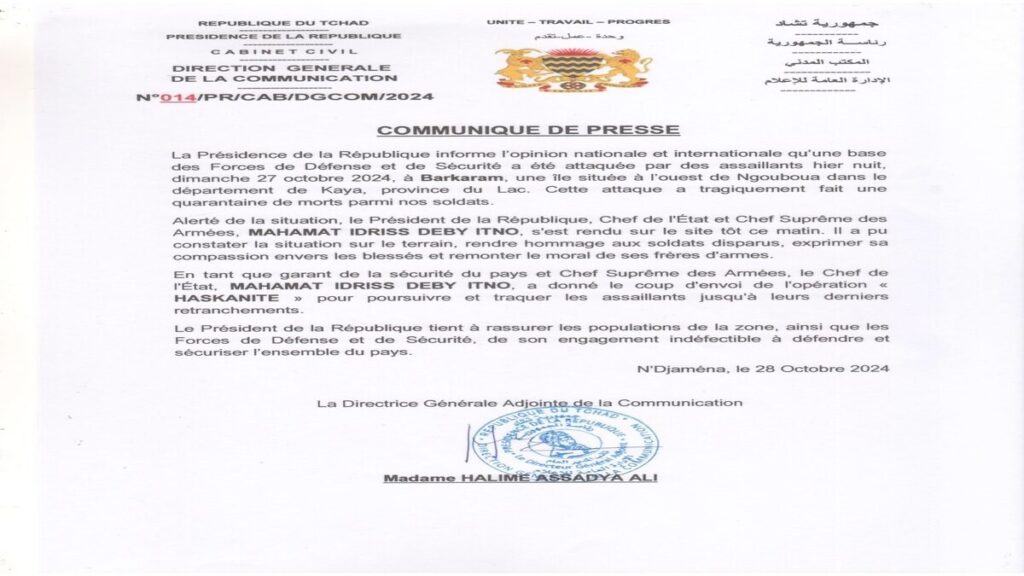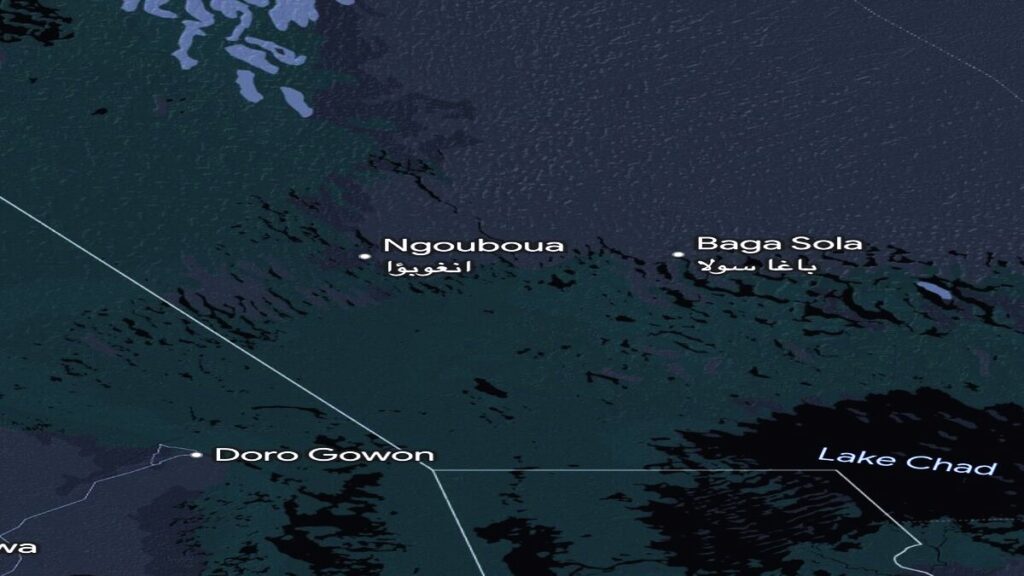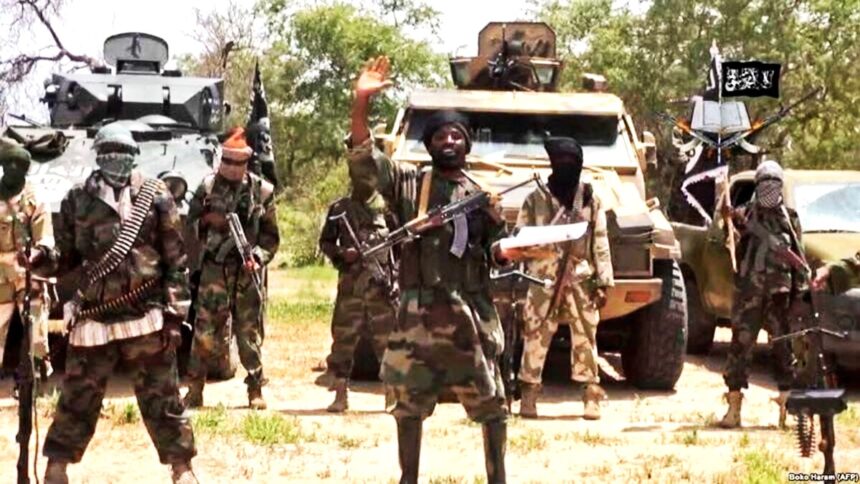A Dark Day for Chad
In a tragic resurgence of violence, Chad has recently witnessed its most significant terrorist attack in four years, claiming the lives of at least 40 soldiers. The assault, which targeted a military base on Barkaram Island, marks a grim reminder of the persistent threat posed by extremist groups in the region, particularly Boko Haram.
The Attack on Barkaram Island
Barkaram Island, situated in the Lake Chad region, lies near the borders of Nigeria and Niger, areas known for their historical struggles with terrorism. On this fateful day, armed militants launched a coordinated attack on the military installation, resulting in heavy casualties among Chadian forces. The President’s Office quickly attributed the attack to Boko Haram, a group infamous for its violent insurgency that has plagued the region for over a decade.
Although the Chadian government has pointed to Boko Haram as the likely culprit, the terrorist organization has yet to formally claim responsibility for this brutal assault. This uncertainty underscores the chaotic and fragmented nature of terrorist networks in Central Africa, where multiple factions operate with varying degrees of coordination and motivation.

Historical Context: A Legacy of Violence
The recent attack is the most significant since 2020, when a brutal ambush claimed the lives of more than 100 Chadian soldiers. This history of violence reflects the ongoing struggles faced by Chad and its neighbors, who have battled insurgents and terrorist groups for years. The Sahel region, where Chad is located, has become increasingly destabilized, as groups like Boko Haram and the Islamic State in West Africa exploit the chaos to expand their influence.
Chad’s strategic location, bordered by countries like Niger, Nigeria, Sudan, and Libya, makes it particularly vulnerable to the spillover of violence. The porous borders and the presence of various militant groups create a complex security landscape that challenges both local and international forces.
Around 40 soldiers were killed in an attack on a military base in Chad’s Lake region on Sunday.
It has been repeatedly attacked by insurgencies including by Islamic State in West Africa and Boko Haram, which erupted in northeast Nigeria in 2009 and spread to the west of Chad.… pic.twitter.com/jLXEj65hcN
— Pegida Canada (@PegidaCanada) October 28, 2024The International Dimension
Chad is not alone in its fight against terrorism; it is a crucial ally of both the United States and France in combating jihadist movements in the Sahel. In recent years, these nations have provided military support to bolster Chad’s capabilities. However, the efficacy of these operations has been called into question, particularly as neighboring countries like Mali, Niger, and Burkina Faso have moved away from Western military partnerships in favor of alliances with Russia.
The shift in regional dynamics complicates the security landscape further, as countries reassess their strategies to deal with the ongoing threats. As Chad continues to fight against the tide of extremism, it must navigate these shifting alliances while also addressing the immediate threat posed by groups like Boko Haram.

The Immediate Response
In response to the latest attack, President Mahamat Idriss Deby has called for immediate military action against the perpetrators. This directive emphasizes the urgency of the situation and reflects the government’s commitment to countering terrorism in the region. The call to arms aims to send a strong message that such attacks will not go unanswered, but it also highlights the precarious position of Chad’s military forces.
Given the complexities of the conflict and the dangers posed by militant groups, any military operation will need to be carefully planned and executed. The Chadian military faces significant challenges, including limited resources and the need for intelligence that can effectively pinpoint the movements of these elusive insurgents.
A Persistent Threat
The history of Boko Haram’s activities in Chad is a testament to the resilience of terrorist groups in the region. The organization, originally based in Nigeria, has expanded its operations into Chad and the surrounding areas, using tactics such as ambushes and raids to inflict damage on military and civilian targets alike. The recent attacks, including the ambush on February 22, 2022, which resulted in the deaths of five soldiers, demonstrate the ongoing threat they pose to stability in the region.
Moreover, the attacks on civilians, like the killing of two individuals in the Lak region earlier this year, serve as grim reminders of the humanitarian cost of the conflict. These acts of violence contribute to a climate of fear and instability that affects not only the immediate victims but also the broader population.
The Way Forward
As Chad grapples with the fallout from this devastating attack, the road ahead will be fraught with challenges. The government must balance the urgent need for security with the humanitarian implications of military operations. Strengthening alliances with international partners while fostering local resilience against extremism will be crucial in the fight against Boko Haram and other militant groups.
Ultimately, the situation in Chad reflects a broader struggle against terrorism in the Sahel, a region that has become a hotspot for extremist activity. As the international community watches closely, the hope is that effective strategies can be developed to restore peace and security to Chad and its neighbors, preventing further loss of life in a region that has endured too much suffering.
Read More : Georgia’s Election Crisis: Pro-Western Opposition Disputes Results





